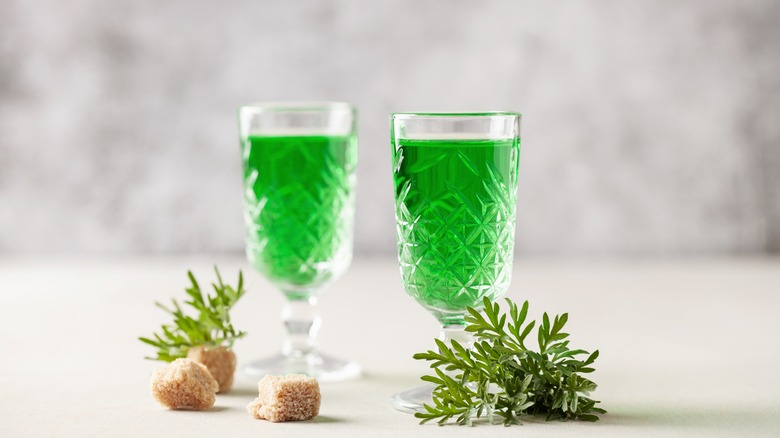Is Absinthe High In Calories?
Is absinthe a high-calorie liquor? Or, is the health worry just a modern-day myth that only furthers the drink's dubious history?
According to the Wormwood Society, a Washington, D.C.-based nonprofit dedicated to providing "scientifically accurate information about absinthe, the most maligned and misunderstood drink in history," it's the latter.
"Absinthe itself isn't any more fattening than any other alcoholic beverage," writes Brian Robinson, the nonprofit's review editor, in an email. "Alcohol does contain calories, but the only additional calories absinthe could contain would be any added sugar. Some lower-quality brands contain added sugar (look for the word "liqueur" on the label), but higher-quality brands (including Mansinthe) don't add any. However, if he were to be using sugar cubes as part of his normal preparation routine, that could certainly add some calories. He might have said absinthe, but possibly intended to mean alcohol in general. Many dietitians recommend reducing alcohol consumption to help reduce overall caloric intake."

